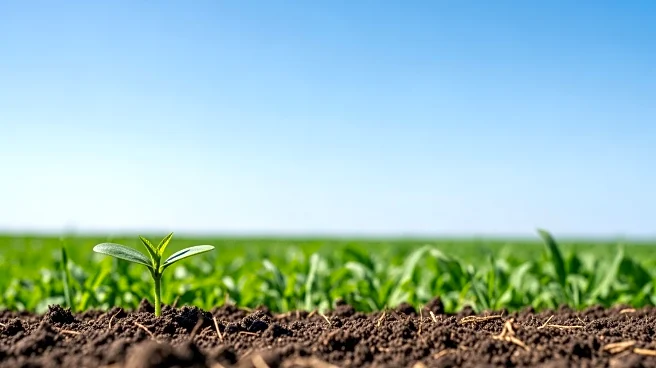What's Happening?
Cargill is expanding its support for regenerative agriculture across 16 countries, as detailed in its latest annual report. The company is involved in various programs and partnerships, including a collaboration
with Mars, Inc. to assist Polish farmers in receiving payments for carbon sequestration. This initiative aims to improve soil health on over 4,500 hectares by 2026. Cargill is also investing in renewable biofuels, exemplified by its acquisition of Brazilian agriculture company SJC Bioenergia. Additionally, the company is conducting pilot programs in the U.S. Midwest, focusing on camelina, a crop that supports soil health and can be used for renewable fuels.
Why It's Important?
Cargill's investment in regenerative agriculture is significant for its potential to enhance farm resilience, improve soil health, and reduce greenhouse gas emissions. By supporting these practices, Cargill is contributing to a more sustainable agricultural system that benefits both the environment and farmer livelihoods. The company's efforts align with global sustainability goals and demonstrate the role of large corporations in driving environmental change. This initiative could lead to increased adoption of regenerative practices worldwide, influencing other companies to follow suit and potentially transforming the agricultural industry.
What's Next?
Cargill's ongoing projects and partnerships are expected to continue expanding, with a focus on scaling regenerative practices and supporting farmers in their transition. The company's commitment to renewable energy and sustainable agriculture may inspire similar initiatives across the industry. As these practices become more widespread, they could lead to significant environmental benefits and contribute to global efforts to combat climate change. Stakeholders, including farmers, environmental groups, and policymakers, will likely monitor Cargill's progress and its impact on the agricultural sector.









